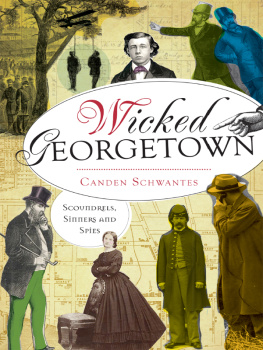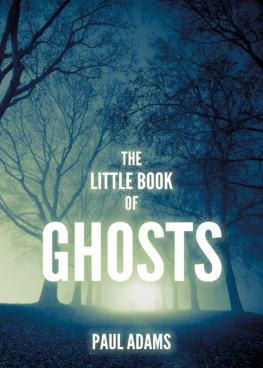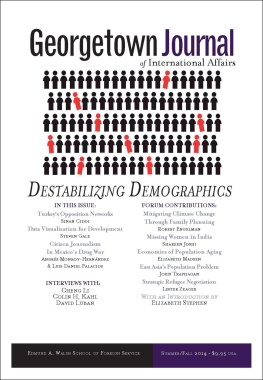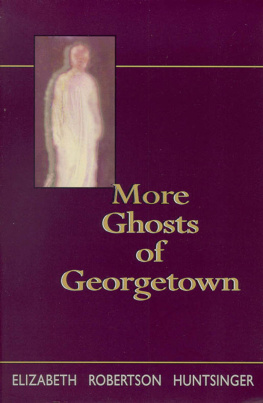Published by Haunted America
A Division of The History Press
Charleston, SC 29403
www.historypress.net
Copyright 2013 by Tim Krepp
All rights reserved
Cover images by Clift A. Seferlis.
First published 2013
e-book edition 2013
Manufactured in the United States
ISBN 978.1.62584.579.5
Library of Congress CIP data applied for.
print edition ISBN 978.1.62619.124.2
Notice: The information in this book is true and complete to the best of our knowledge. It is offered without guarantee on the part of the author or The History Press. The author and The History Press disclaim all liability in connection with the use of this book.
All rights reserved. No part of this book may be reproduced or transmitted in any form whatsoever without prior written permission from the publisher except in the case of brief quotations embodied in critical articles and reviews.
FOREWORD
The first thing to be said about Tim Krepp is that he knows haunts. We share one, actually: a coffee shop called Peregrine Espresso, where caffeinated regulars gather every morning to shoot down old legends and grow new ones. Is it any wonder that books emerge from such a place? And that they have more than a whiff of macchiato about them?
But Tims booksand Tim himselfhave a flavor all their own. If youve ever bounded after him down the National Mall or followed him into one of Washington, D.C.s hidden corners or listened to him expatiate on the famous and the unfamous, you know he is the ideal tour guide: cheerful, witty, indefatigable, absurdly well informedand always tucking just the right amount of tongue into cheek.
People die; stories live. So, you can read this book as a compendium of supernatural events or as a testament to the longevity of a good yarn. Either way, youre in fine hands. And so are the ghosts of Georgetown.
LOUIS BAYARD
ACKNOWLEDGEMENTS
First off, at the risk of being redundant from my last book, particular thanks are owed to my wife, Denise, and daughters, Cason and Megan. Researching and writing combine the general chaotic slothfulness of my presence with the disengagement of a prolonged absence, and they bore it with far more grace and composure than I deserve.
Next, I want to thank anyone whos ever paid taxes, as so much of what I was able to do was paid for by you. We are a great country, and the reason that I know that is that I can read about it in great institutions like the Library of Congress, the National Archives, the Smithsonian and many more. For hundreds of years, we have made a priority of remembering who we are, both our accomplishments and our flaws, and built temples to house that legacy. Today, as a result, at the click of a mouse or the opening of a dusty folder, I can summon forth that knowledge. You paid for that, as well as your parents and your grandparents. So thank them for me, and thank you.
And thats not just on the federal level. Right here in the District of Columbia, the Peabody Room of the Georgetown Branch of the D.C. Public Library is an amazing resource, founded by a bequest from financier and philanthropist George Peabody, and paid for by the taxpayers of the District of Columbia ever since.
It is regrettably unhaunted. I can say that with some authority, for if it were haunted, the collection librarian and archivist Jerry McCoy would have systematically catalogued those ghosts and placed them in a vertical file, accessible to future researchers. Jerrys phenomenal dedication continues to honor George Peabodys original gift and is an amazing resource for visitors and locals alike. You should go visit.
Ive been walking the streets of Georgetown for decades now, but its not home. Home is across town on Capitol Hill, so a particular thanks goes to Topher Matthews for getting the word out about this project and introducing me to many others who do make their homes in Georgetown. Many of their stories made it into this book, and even if they didnt, they helped me appreciate the quirks and wonders of being a Georgetowner. Tophers website, the Georgetown Metropolitan, gives you a window into that world from the convenience of your own home.
Not to drag this out, but Washington, D.C., has a phenomenal group of writers and historians, and being a part of that community lets us do exciting things. Fellow History Press writers Robert Pohl, John DeFerrari, John Muller and Garrett Peck have all told fascinating stories of Washington. Their works should be your next reads if youre interested in learning more about this town. Louis Bayard already has the New York Times giving him a shout-out, so he hardly needs my humble words, but I thank him for taking the time to jot down a few thoughts to get this book going. And thanks to my good friend the indefinable Clift Seferlisif that is his real namewho knows long-dead Georgetowners as if theyre his drinking buddies.
Finally, a word of caution on addresses. In 1871, Georgetown, D.C., ceased to exist as a separate city and was incorporated into Washington. To facilitate that, streets were renamed to continue the LEnfant plan of numbered and lettered streets. Bridge Street became M Street, Fayette Street became 35th and so on. It can be confusing, and I trust that Ive accurately referred to street names as contemporary accounts would have done so, while noting in parenthesis the modern nomenclature. This can be particularly difficult when a story spans the 1870s and the street names change mid-tale.
So, I ask your penitence in navigating the names. If you become frustrated, as I often am, let us turn that anger on our territorial governor of the time, Alexander Boss Shepherd, who masterminded this change. After all, what has Boss Shepherd ever done for us? Well sure, grading the streets. You could barely walk on them before. And fine, a sewer system. Who wants everyone dying of typhoid? And developing a comprehensive public transportation system. Sure, I suppose getting around is a good thing. But besides consolidating Washington and Georgetown into one city, what has Boss Shepherd really ever done for us?
INTRODUCTION
Still in the shaded hillside streets
A trace of old-time welcome greets
The passer-by who has a flair
For scenes of old,
No longer there
A buoyant Georgetown stands alone,
The Federal City having grown
Until their boundaries overlap;
So that, deleted from the map,
Through once the Federal Citys host,
Georgetown itself is now a ghost.
William Tipton Tablott
Ghosts are inherently depressing, but that has little to do with death. Death can be tragic, it can be untimely and it can be rough on those who still live, but in and of itself its just the final stage of our life here on earth. Often, its just the endno more lamentable than the final pitch at a baseball game or the last scene in a movie.
But theres nothing final about ghosts. They continue to repeat themselves over and over, like some sort of eternal dentists waiting room. Even the fires of hell would break things up a bit. Ghosts of sea captains look out the same windows, and things that go bump in the night do it night after night. Theres no closure, and worse, no progress.
When William Tipton Tablott wrote the words above in 1927, he consigned Georgetown itself to that fate. The neighborhood had seen better days, and the best that could be hoped for was the preservation of the past. A laudable goal, of course, and I hope my chronicling of these tales furthers that in some small way, but it was still inherently backward-looking.









